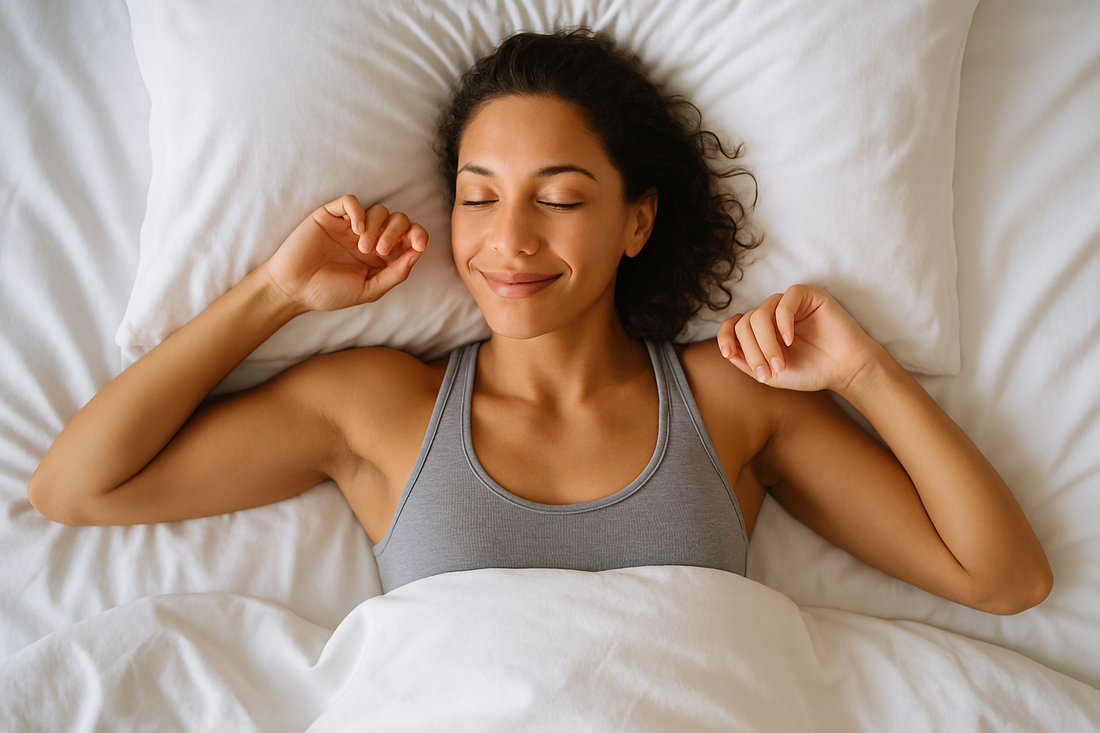
Better Sleep and Less Stress: Your Fall Reset Strategy
Share
Quality sleep is one of the most overlooked tools for better recovery, performance, mood, and long-term health. But for many people, restful sleep doesn’t come easy — and even small disturbances can sabotage progress in the gym and in daily life.
If you’ve been struggling with falling asleep, staying asleep, or waking up refreshed, it’s worth exploring targeted natural health options that support the body’s recovery systems.
Here are some of the top nutrient categories that can help improve sleep quality and maximize nighttime recovery.
1. Magnesium
Magnesium plays a central role in calming the nervous system, reducing muscle tension, and supporting deep, restorative sleep. Forms like magnesium glycinate and Aquamin magnesium are particularly effective due to their absorption and gentle impact on digestion.
How it helps:
- Supports relaxation and reduces nighttime restlessness
- Aids in muscle recovery and cramp prevention
- May help regulate sleep cycles
Pro tip: Consume a powder or capsule about 30-60 minutes before bed. Avoid magnesium oxide, which is poorly absorbed and may cause GI discomfort.
2. L-Theanine
Found in green tea, L-theanine is a calming amino acid that promotes relaxation without sedation. It helps reduce anxiety and tension while keeping the mind clear.
How it helps:
- Eases the transition to sleep without drowsiness
- Helps reduce nighttime overthinking
-
Can be combined with magnesium or melatonin
3. GABA and Glycine
These are both neurotransmitters that help calm the brain and prepare it for deep sleep. GABA is involved in reducing neuronal excitability, while glycine has been shown to lower core body temperature, a key signal for sleep onset.
How they help:
- Decrease mental activity and quiet the nervous system
- Support deep, uninterrupted sleep
-
Improve next-day alertness
4. Adaptogens
Adaptogenic herbs like ashwagandha and holy basil support stress resilience and cortisol balance. When used correctly, they can help regulate the body’s stress response and promote more consistent sleep patterns.
How they help:
- Reduce evening stress and anxiety
- Support balanced cortisol rhythms
-
May improve sleep quality over time when used daily
5. Melatonin (used cautiously)
Melatonin is a hormone your body naturally produces to signal sleep. For people who struggle with circadian rhythm issues, like shift workers, jet lag, or irregular sleep schedules, melatonin may be helpful.
Use with care: Low-dose melatonin can help with timing, but higher doses or long-term use may disrupt your body’s natural production. It's best used occasionally or under guidance.
Supporting Habits That Enhance Supplement Effectiveness
Even the best supplements work best when paired with consistent sleep habits:
- Dim lights 60–90 minutes before bed
- Avoid screens or blue light exposure after dark
- Keep a regular bedtime and wake-up time
- Limit caffeine after noon
- Avoid alcohol before bed, which disrupts REM sleep
You don’t need a prescription to get better sleep. With a few key supplements and supportive habits, you can help your body wind down, recover faster, and wake up ready to perform.
Prioritize your recovery. Protect your energy. Sleep is not a luxury, it’s your foundation.
Fuel your fitness. Rest with intention.
